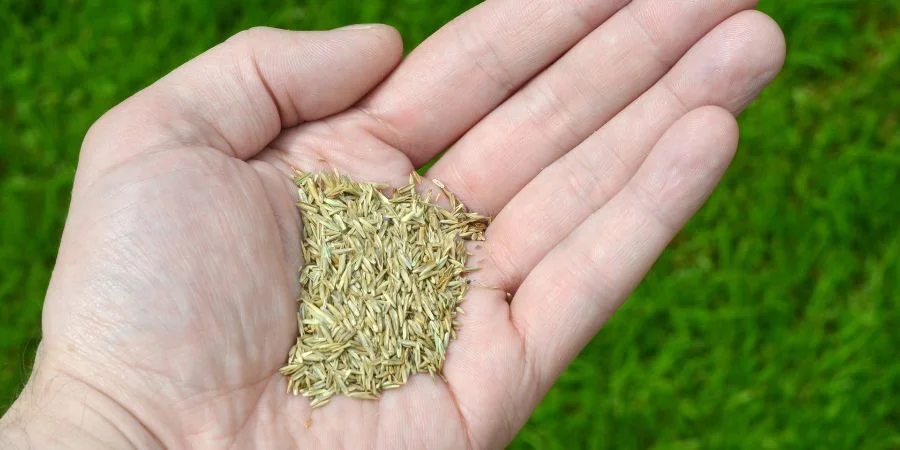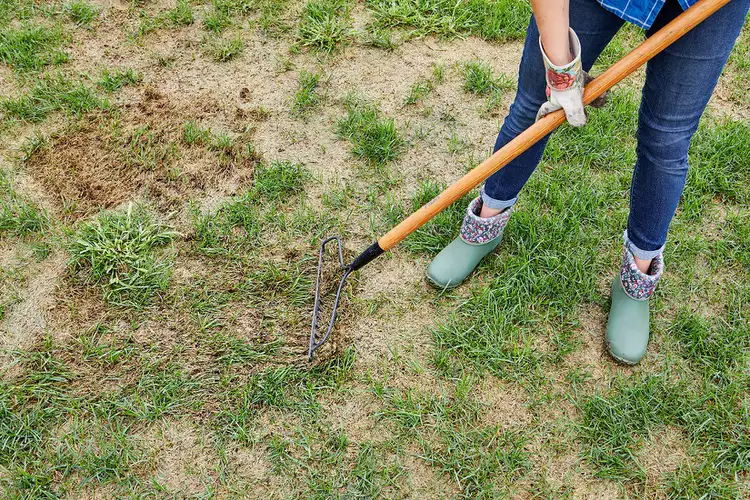Should Lawn Mower Blades Be Razor-Sharp?
Last Updated on February 7, 2024 by Duncan
Due to the impact the blade’s condition has on the cut quality and health of your lawn, not to mention the longevity of your mower, you may want to keep your lawn mower blades as sharp as possible.
The big question is, should lawn mower blades be razor sharp?
While it’s not an exact science, and you’ll probably get different answers if you ask around online, the general consensus is that your mower blade should have a nice straight edge (when it dulls, the edge becomes rounded), but it shouldn’t be razor-sharp to the touch. If it is, you have gone too far.
A new blade is a fantastic starting point for determining how sharp your mower blade should be.
When you sharpen your blade, your goal should be to restore it as close to its original sharpness as possible, but no farther. You’re aiming for butter knife sharpness rather than carving knife sharpness.
What’s the problem of having a lawn mower blade that is too sharp?
You might have the impression that the sharper your lawn mower blade, the better. But this is not true.
The good news is that a sharp mower blade wouldn’t harm the health of your grass in the same way that a dull blade would.
If you sharpen your blade as much as possible and then compare it to a newly acquired blade, you will notice that the razor-sharp blade cuts the grass significantly cleaner.
Unfortunately, doing this is often a case of diminishing returns, as the difference is not particularly visible.
At the same time, sharpening your mower blades too much often leads to the blade wearing out too fast, and you have to replace it too often.
Another reason you shouldn’t sharpen mower blades as sharp as carving knives is simple: trash.
Stones, pebbles, sticks, and other yard detritus (especially anything hard) that your mower encounters are likely to cause nicks in the blade’s edge, diminishing its efficacy and causing it to dull faster than a blade with exactly the correct level of sharpness.
As you can tell, this means you need to sharpen the blade more often.
So if you sharpen your blade too much, you’ll find yourself pulling your blade out from under the deck and fastening it to your workshop bench far more frequently than you’d prefer.
To be on the safe side, stick to the guidelines mentioned above, and you are good to go.
How do I know if my lawn mower blade needs to be sharpened?
As much as your mower blades don’t have to be razor sharp, they need sharpening.
If you notice that the quality of your cuts is deteriorating with time, your blade needs to be sharpened.
As I have mentioned above, when the blade dulls, the edge becomes rounded and no longer cuts through your grass as effectively as before.
Instead, it cuts by force, ripping your grass blades rather than slicing them. This is not good for your lawn for several reasons:
You lose moisture in your grass
If you look closely at individual blades of grass after passing over them with a dull blade, you may notice shredded, frayed ends.
This allows moisture to be wicked or evaporated from the grass. As you can tell, this is not good if you want a nice green lawn.
You have an increased risk of lawn diseases.
A perfectly sharpened mower blade will create a clean cut, allowing the grass to recuperate rapidly. But a dull blade causes huge open wounds that take a long time to heal.
These wounds provide a direct entry point for lawn diseases to assault your grass, similar to how an open wound on your finger can allow bacteria to enter and produce an infection.
Both of these issues substantially impact the appearance of your grass, frequently resulting in an unsightly brown lawn. And the consequences will often extend beyond your lawn.
A dull blade causes the motor or engine that powers your mower to work harder, which reduces its lifespan, often drastically in the case of lower-quality mowers.
Due to these problems, you should keep an eye on your lawn mower blades and sharpen them when they get dull.
Best practices when sharpening your lawn mower blades
Besides taking care not to over-sharpen your mower blades, there are several other things you should do. These things include:
Avoid sharpening the blades too frequently
Remember that sharpening lawn mower blades too often may require you to replace them every few months.
However, based on our experience with quality mowers, a decent one with properly tempered blades should last a year or longer.
To avoid replacing the blades too frequently, keep sharpening frequency to a minimum, perhaps after the eighth mowing.
While this is the case, you should note that depending on the kind of the machine you’re using for blade tempering and other conditions, you may need to flatten nicks frequently.
Have the blades sharpened by an expert
If you’re having trouble sharpening and balancing lawn mower blades, get professional assistance. It should be inexpensive, usually less than $10, depending on the condition of the blade.
Make use of a balancing tool.
Balancing prevents vibration, which reduces stress on the cutting deck and engine. To keep your lawn mower in top shape, perform the balancing before replacing the blade.
A balancer tool should assist you in achieving even weight distribution over the blade, which comes in handy in giving your lawn mower a longer lifespan.
Why do lawn mower blades get dull/lose their sharpness?
There are plenty of reasons your lawn mower blades will get dull. These reasons include:
You don’t sharpen the blades frequently enough
While you should always sharpen blades, keeping them unsharpened results in sporadic sharpening. If you don’t point frequently, the work will become more difficult the following time, say in six months.
Sharpening blades unevenly results in uneven edge bevelling/angling. Thus, uneven sharpening frequently causes blades to dull faster than they should.
Mowing the grass too close to the ground
If you cut grass too near to the ground, mower blades will dull more quickly. While you want to make the grass shorter, doing so exposes the blade to stones and pebbles, causing it to lose sharpness faster than cutting grass higher.
Regular tea and wear
Even without mowing the grass too close to the ground, the blades wear out over time. The more the blades strike rocks, stones, sticks, and pebbles, the duller they get.
Poor quality blades
If you have poor quality blades, they are bound to lose their sharpness too frequently than their higher quality counterparts.
Parting shot
If you think your lawn mower blades have to be as sharp as a carving knife, it’s not the case. They need to be sharp enough to give your lawn a clean cut.
You can sharpen the blades at home, but if you aren’t sure about your skills, get the help of a professional. It’s not expensive.


